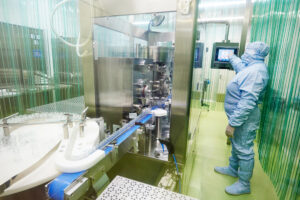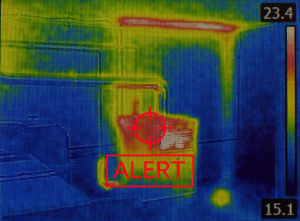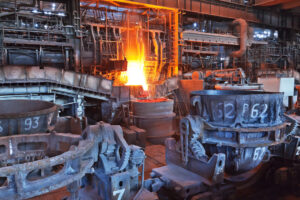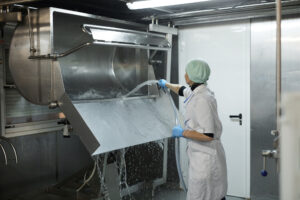The automotive industry has been growing steadily in the past couple of decades and that growth will not be slowing down any time soon. That doesn’t mean it’s not without its challenges, though.
Quite the contrary: the more lucrative an industry, the higher the competition. It’s not easy to start an automotive manufacturing business, just as it’s not easy to stay competitive.
Whether you are a car or a parts manufacturer, you’re probably familiar with these challenges:
- Mounting competition from outside the country
- The rising cost of materials
- Managing the expectations to deliver fast
- Increased pressure to keep the costs low without compromising quality
Consumers want good cars at low prices, and they want them delivered fast. Quite the tall order, isn’t it?
This is where video monitoring can help.
How to Streamline Processes in Automotive Marketing with Video Monitoring
Cameras in automotive manufacturing plants are usually perceived as a security measure—to prevent theft and break-ins. While that used to be their primary purpose, today we know that they can do so much more.
Let’s take a look at a few key ways the automotive sector can use video monitoring:
Improve Cycle Time in Automotive Part Manufacturing
Your revenue as an automotive manufacturer depends on the cycle time—how long it takes to produce each part. To speed up this process, you need to work on the bottlenecks in your production line.
Here’s how you can do that:
- Define a standardized procedure, (e.g., which conveyor belt is used, how the workers interact with the machinery, and so on).
- Using your video feed, identify the current cycle time—how long it takes for each part to be produced.
- Divide each procedure into micro steps (e.g., one worker has to move the part 10 inches to the left, another has to collect the parts from the conveyor belt, and so on). Your video recordings can help here as well.
- Identify the opportunities to improve the way products move through the process.
- Work with operations professionals to test and implement ways to make the process more efficient.
Video Monitoring for Predictive Maintenance in Automotive Manufacturing
Your equipment needs to undergo regular maintenance work—but what if the timeframes are not ideal? Some pieces of equipment tend to “lag” right before their maintenance is scheduled.
Even if it seems like a minor inconvenience, the added time can harm your cycle time and reduce your revenue.
Through video monitoring, a remote operator can easily spot the pieces of equipment that used to work better and schedule them for maintenance work ahead of the regular schedule. Moreover, they can spot incidents waiting to happen and alert the floor supervisors of potential safety issues.
Video Monitoring for Automotive Manufacturing Compliance
It’s very common for thousands of cars to have faulty parts recalled—this costs plants millions of dollars every year, not to mention the hit their reputation takes. Once the cars are recalled, an internal (or external) investigation begins.
Automotive manufacturing is a highly regulated industry because even the tiniest of mistakes can lead to terrible accidents. Thus, it’s crucial for manufacturers to prove their compliance, either to regulatory bodies or to their clients.
With the right cameras in the right places, you can use your video feeds to prove that you have done your due diligence and that your processes and materials are 100% compliant with current regulations. Just make sure to save the recordings!
How Do I Choose the Right Cameras for an Automotive Manufacturing Plant?
In manufacturing plants, cameras have to withstand harsh conditions: high levels of vibration, humidity, dust, debris, and more. Otherwise, you will end up replacing your cameras every couple of months.
More importantly, while you replace your cameras, your video feed will be interrupted. This is why off-the-shelf video monitoring systems are not ideal for industrial plants.
Rugged cameras are built with the need of industrial environments in mind: they can withstand shocks, vibration, humidity, and more. While they are more expensive upfront, the mere fact that you won’t have to replace them every couple of months makes their ROI much better than that of off-the-shelf cameras.
If you’re looking for the right video monitoring system for your automotive manufacturing plant, you’re in the right place! Opticom has been helping industrial plants improve their operations through ruggedized video monitoring solutions for 50 years.







